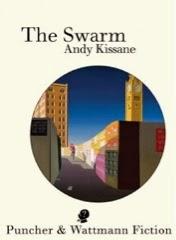I don’t buy into the idea that the short story is an endangered species, and here’s why.
In our busy twenty-first century lives, the short story is just the right length to fit into those brief moments where we catch our breath before the next responsibility clammers for our attention. Most of us live time-poor lives. We work, raise families, look after elderly parents, shop, cook, clean, do laundry, maintain our homes and gardens, visit relatives, socialise with friends, and the list goes on, especially if you have children involved in sport or dance, or any number of other after school and weekend activities. Not much time in there for reading is there?
The short story, whether 500 or 5000 words long can slot into place between these activities: waiting for a load of washing to finish, waiting in the car for your teenager to finish work, in the doctor’s waiting room, picking your child up from school. Where a novel takes an extended concentration span and committment, a short story asks much less of you yet offers just as much in return, if not more.
Short stories are more immediate and compelling than a longer work of fiction. Done well, a short story will grab you by the scruff of the neck and push you hard up against life, a moment of it, in all it’s beauty and uglyness. In a short story, every word counts. The writer has to grab their reader from the first sentence and hold them.
Andy Kissane did this with the first story in his collection “The Swarm” and kept doing it right to the last page. He very cleverly linked the first and last stories to bring the reader full circle and create a feeling of completion. The final story especially stayed with me long after I read the last sentence, as did the first. There is sadness and loss in both of these stories, and in between there are many and varied characters to carry you through the rest of the collection. Some of the stories are rather simple in the way they are developed, but all contain a glimpse of what it means to be human. One surprising story in particular was like a written version of a surrealist’s painting.
Kissane’s stories aren’t complex or filled with movement and action, in fact they are fairly sedate, but satisfying none the less. There is a skill to writing a good short story. Every word must count. Kissane clearly knows this. There is nothing superfluous here.
I’m glad I had the chance to read “The Swarm” and become familiar with this writer’s work. I’ll be more inclined to read something else he’s written now.

